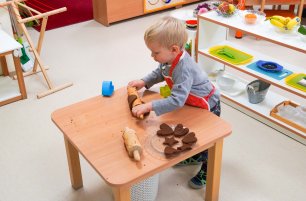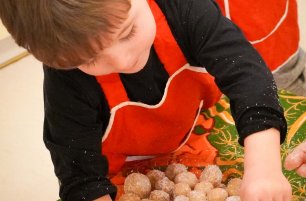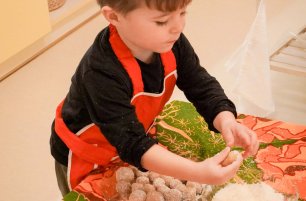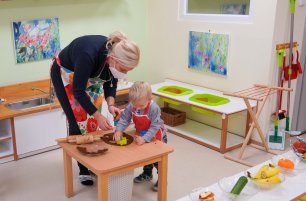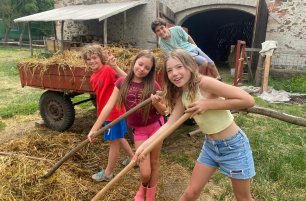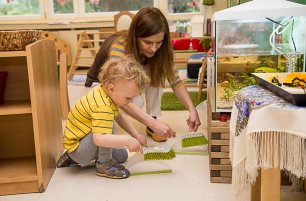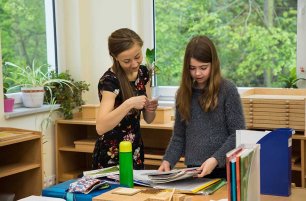Holiday Baking With Your Toddler
It's beginning to look a lot like winter - with first frosts and early dark, but also bright twinkling lights and seasonal decorations wherever you look. Is it any wonder that we populate the long, cold nights of December with candle light, evergreens and the smells of a myriad festive treats? So many delicious flavours belong firmly at the close of the year - hot chocolate and sweet tea, spiced pies, delicate cookies and savoury roasts, all keeping us cozy and warm as well as full.
Cooking and baking can be a necessary chore, but it can also become a wonderful family activity. Young children may not help with every meal, but holiday treats are the perfect opportunity for them to participate in the profound work of creating something nourishing - and delicious - for the whole family. Not to mention, have lots of fun! The kitchen is an absolute wonderland for a toddler child and harnessing their enthusiasm might end up much more enjoyable, and fruitful, than you might ever expect.

Just keep in mind:
Safety First
Before you get started, look at your workspace with a critical eye - can your toddler handle everything in her reach? She will likely want to try and touch anything you do, so will that include sharp knives or hot stovetops? Are there heavy objects that she might pull onto herself? More often than not, simply explaining and showing the dangers to your child, in advance, will be enough, provided there are other interesting things to keep her busy. With a younger toddler it might also be safer to avoid the step stool (with its risk of fall) and instead set up her own small table, and declare the "adult" countertops firmly out of bounds.
Adjust Your Expectations
What is your toddler's attention span? Can he stay through making the whole recipe? And on that matter, will the recipe handle some extra flour because it was a bit too much fun to pour? It's best to choose forgiving recipes (think oatmeal cookies rather than macaroons) that are not fiddly about ingredients or extra resting time if you need to stop and leave the kitchen for any reason. Also, it might be a good idea to have some extra of each ingredient on hand - but out of reach - in case of accident. No one wants to forgo cookies just because they dropped the egg!
Break it Down
So, what is it that your toddler is actually going to do? Let's gather all of the necessary tools and ingredients; "mise en place" is invaluable to professional chefs and two-year-olds in chef hats alike - and get down to business. Some ideas for youngest children include: washing produce, pouring, spooning or otherwise transferring (you can measure the ingredients in advance), stirring and whisking, scooping and forming (for example, pinching and balling cookie dough), peeling and slicing (tangerines, eggs and bananas are especially popular). Older toddlers can also measure ingredients, crack eggs, shell certain nuts, spread (for example, making jam cookie sandwiches) or sift flour.

Embrace the Mess
It will happen, one way or another. But the good news is, often cleaning up the mess is just as much fun - for your toddler, at least - as the cooking itself. Make sure you have rags, mops and brooms at the ready, and dress to impress, that is, in an apron or clothes that you don't mind getting stained.
Have Fun!
It's not about where you're going, it's about the journey... could be a motto of the toddler age. When banana bread is but a distant promise, your child is here and now, having the time of his life smushing bananas with their hands. This is what treasured memories are made of. So go ahead and smell the roses - or the bananas and spices, as the case may be - and enjoy the moments for what they are.
By Michaela Tuckova
Want to learn more? Read our next article:
